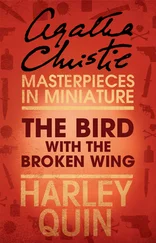Edmond About - The Man With The Broken Ear
Здесь есть возможность читать онлайн «Edmond About - The Man With The Broken Ear» — ознакомительный отрывок электронной книги совершенно бесплатно, а после прочтения отрывка купить полную версию. В некоторых случаях можно слушать аудио, скачать через торрент в формате fb2 и присутствует краткое содержание. Жанр: literature_19, foreign_antique, foreign_prose, Зарубежные любовные романы, на английском языке. Описание произведения, (предисловие) а так же отзывы посетителей доступны на портале библиотеки ЛибКат.
- Название:The Man With The Broken Ear
- Автор:
- Жанр:
- Год:неизвестен
- ISBN:нет данных
- Рейтинг книги:3 / 5. Голосов: 1
-
Избранное:Добавить в избранное
- Отзывы:
-
Ваша оценка:
- 60
- 1
- 2
- 3
- 4
- 5
The Man With The Broken Ear: краткое содержание, описание и аннотация
Предлагаем к чтению аннотацию, описание, краткое содержание или предисловие (зависит от того, что написал сам автор книги «The Man With The Broken Ear»). Если вы не нашли необходимую информацию о книге — напишите в комментариях, мы постараемся отыскать её.
The Man With The Broken Ear — читать онлайн ознакомительный отрывок
Ниже представлен текст книги, разбитый по страницам. Система сохранения места последней прочитанной страницы, позволяет с удобством читать онлайн бесплатно книгу «The Man With The Broken Ear», без необходимости каждый раз заново искать на чём Вы остановились. Поставьте закладку, и сможете в любой момент перейти на страницу, на которой закончили чтение.
Интервал:
Закладка:
"One will dream of it, nevertheless, and perhaps there is no man who has not said to himself at least once in his life: 'If I could but come to life again in a couple of centuries!' One would wish to return to earth to seek news of his family; another, of his dynasty. A philosopher is anxious to know if the ideas that he has planted will have borne fruit; a politician, if his party will have obtained the upper hand; a miser, if his heirs will not have dissipated the fortune he has made; a mere land-holder, if the trees in his garden will have grown tall. No one is indifferent to the future destinies of this world, which we gallop through in a few years, never to return to it again. Who has not envied the lot of Epimenides, who went to sleep in a cave, and, on reopening his eyes, perceived that the world had grown old? Who has not dreamed, on his own account, of the marvellous adventure of the sleeping Beauty in the wood?
"Well, ladies, Professor Meiser, one of the least visionary men of the age, was persuaded that science could put a living being to sleep and wake him up again at the end of an infinite number of years—arrest all the functions of the system, suspend life itself, protect an individual against the action of time for a century or two, and afterwards resuscitate him."
"He was a fool then!" cried Madame Renault.
"I wouldn't swear it. But he had his own ideas touching the main-spring which moves a living organism. Do you remember, good mother mine, the impression you experienced as a little girl, when some one first showed you the inside of a watch in motion? You were satisfied that there was a restless little animal inside the case, who worked twenty-four hours a day at turning the hands. If the hands stopped going, you said: 'It is because the little animal is dead.' Yet possibly he was only asleep.
"It has since been explained to you that a watch contains an assemblage of parts well fitted to each other and kept well oiled, which, being wound, can be considered to move spontaneously in a perfect correspondence. If a spring become broken, if a bit of the wheel work be injured, or if a grain of sand insinuate itself between two of the parts, the watch stops, and the children say rightly: 'The little animal is dead.' But suppose a sound watch, well made, right in every particular, and stopped because the machinery would not run from lack of oil; the little animal is not dead; nothing but a little oil is needed to wake him up.
"Here is a first-rate chronometer, made in London. It runs fifteen days without being wound. I gave it a turn of the key yesterday: it has, then, thirteen days to run. If I throw it on the ground, or if I break the main-spring, all is over. I will have killed the little animal. But suppose that, without damaging anything, I find means to withdraw or dry up the fine oil which now enables the parts to slip upon one another: will the little animal be dead? No! It will be asleep. And the proof is that I can lay my watch in a drawer, keep it there twenty-five years, and if, after a quarter of a century, I put a drop of oil on it, the parts will begin to move again. All that time would have passed without waking up the little sleeping animal. It will still have thirteen days to go, after the time when it starts again.
"All living beings, according to the opinion of Professor Meiser, are watches, or organisms which move, breathe, nourish themselves, and reproduce themselves as long as their organs are intact and properly oiled. The oil of the watch is represented in the animal by an enormous quantity of water. In man, for example, water provides about four-fifths of the whole weight. Given—a colonel weighing a hundred and fifty pounds, there are thirty pounds of colonel and a hundred and twenty pounds, or about sixty quarts, of water. This is a fact proven by numerous experiments. I say a colonel just as I would say a king; all men are equal when submitted to analysis.
"Professor Meiser was satisfied, as are all physiologists, that to break a colonel's head, or to make a hole in his heart, or to cut his spinal column in two, is to kill the little animal; because the brain, the heart, the spinal marrow are the indispensable springs, without which the machine cannot go. But he thought too, that in removing sixty quarts of water from a living person, one merely puts the little animal to sleep without killing him—that a colonel carefully dried up, can remain preserved a hundred years, and then return to life whenever any one will replace in him the drop of oil, or rather the sixty quarts of water, without which the human machine cannot begin moving again.
"This opinion, which may appear inadmissible to you and to me too, but which is not absolutely rejected by our friend Doctor Martout, rests upon a series of reliable observations which the merest tyro can verify to-day. There are animals which can be resuscitated: nothing is more certain or better proven. Herr Meiser, like the Abbé Spallanzani and many others, collected from the gutter of his roof some little dried worms which were brittle as glass, and restored life to them by soaking them in water. The capacity of thus returning to life, is not the privilege of a single species: its existence has been satisfactorily established in numerous and various animals. The genus Volvox—the little worms or wormlets in vinegar, mud, spoiled paste, or grain-smut; the Rotifera—a kind of little shell-fish protected by a carapace, provided with a good digestive apparatus, of separate sexes, having a nervous system with a distinct brain, having either one or two eyes, according to the genus, a crystalline lens, and an optic nerve; the Tardigrades—which are little spiders with six or eight legs, separate sexes, regular digestive apparatus, a mouth, two eyes, a very well defined nervous system, and a very well developed muscular system;—all these die and revive ten or fifteen times consecutively, at the will of the naturalist. One dries up a rotifer: good night to him; somebody soaks him a little, and he wakes up to bid you good day. All depends upon taking great care while he is dry. You understand that if any one should merely break his head, no drop of water, nor river, nor ocean could restore him.
"The marvellous thing is, that an animal which cannot live more than a year, like the minute worm in grain-smut, can lie by twenty-four years without dying, if one has taken the precaution of desiccating him.
"Needham collected a lot of them in 1743; he presented them to Martin Folkes, who gave them to Baker, and these interesting creatures revived in water in 1771. They enjoyed a rare satisfaction in elbowing their own twenty-eighth generation. Wouldn't a man who should see his own twenty-eighth generation be a happy grandfather?
"Another no less interesting fact is that desiccated animals have vastly more tenacity of life than others. If the temperature were suddenly to fall thirty degrees in this laboratory, we should all get inflammation of the lungs. If it were to rise as much, there would be danger of congestion of the brain. Well, a desiccated animal, which is not absolutely dead, and which will revive to-morrow if I soak it, faces with impunity, variations of ninety-five degrees and six-tenths. M. Meiser and plenty of others have proved it.
"It remains to inquire, then, if a superior animal, a man for instance, can be desiccated without any more disastrous consequences than a little worm or a tardigrade. M. Meiser was convinced that it is practicable; he wrote to that effect in all his books, although he did not demonstrate it by experiment.
"Now where would be the harm in it, ladies? All men curious in regard to the future, or dissatisfied with life, or out of sorts with their contemporaries, could hold themselves in reserve for a better age, and we should have no more suicides on account of misanthropy. Valetudinarians, whom the ignorant science of the nineteenth century declares incurable, needn't blow their brains out any more; they can have themselves dried up and wait peaceably in a box until Medicine shall have found a remedy for their disorders. Rejected lovers need no longer throw themselves into the river; they can put themselves under the receiver of an air pump, and make their appearance thirty years later, young, handsome and triumphant, satirizing the age of their cruel charmers, and paying them back scorn for scorn. Governments will give up the unnatural and barbarous custom of guillotining dangerous people. They will no longer shut them up in cramped cells at Mazas to complete their brutishness; they will not send them to the Toulon school to finish their criminal education; they will merely dry them up in batches—one for ten years, another for forty, according to the gravity of their deserts. A simple store-house will replace the prisons, police lock-ups and jails. There will be no more escapes to fear, no more prisoners to feed. An enormous quantity of dried beans and mouldy potatoes will be saved for the consumption of the country.
Читать дальшеИнтервал:
Закладка:
Похожие книги на «The Man With The Broken Ear»
Представляем Вашему вниманию похожие книги на «The Man With The Broken Ear» списком для выбора. Мы отобрали схожую по названию и смыслу литературу в надежде предоставить читателям больше вариантов отыскать новые, интересные, ещё непрочитанные произведения.
Обсуждение, отзывы о книге «The Man With The Broken Ear» и просто собственные мнения читателей. Оставьте ваши комментарии, напишите, что Вы думаете о произведении, его смысле или главных героях. Укажите что конкретно понравилось, а что нет, и почему Вы так считаете.












